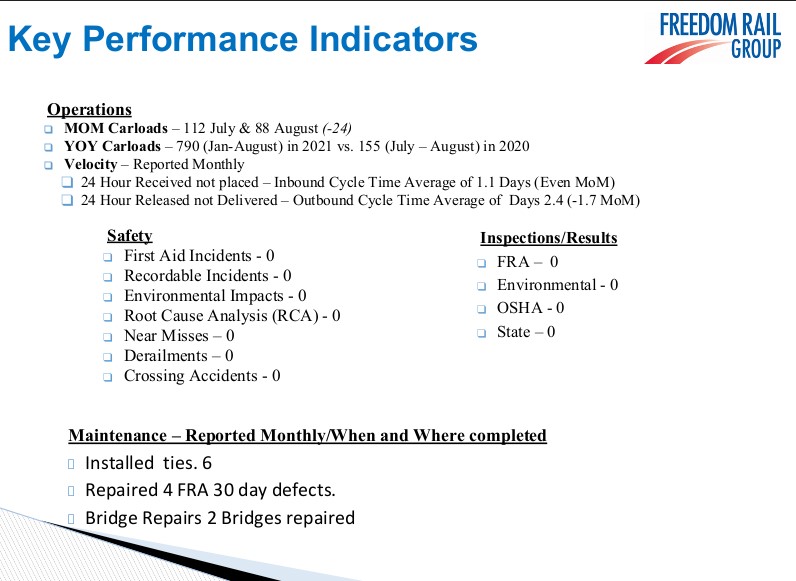After months of negotiations, Northeast Texas Rural Rail Transportation District, the rural rail district spanning from Titus County to Wylie that is known as NETEX, and rail operator North East Texas Connector (NETC) of Freedom Rail Group inked an agreement for contract revisions Thursday afternoon.
Contract Revision
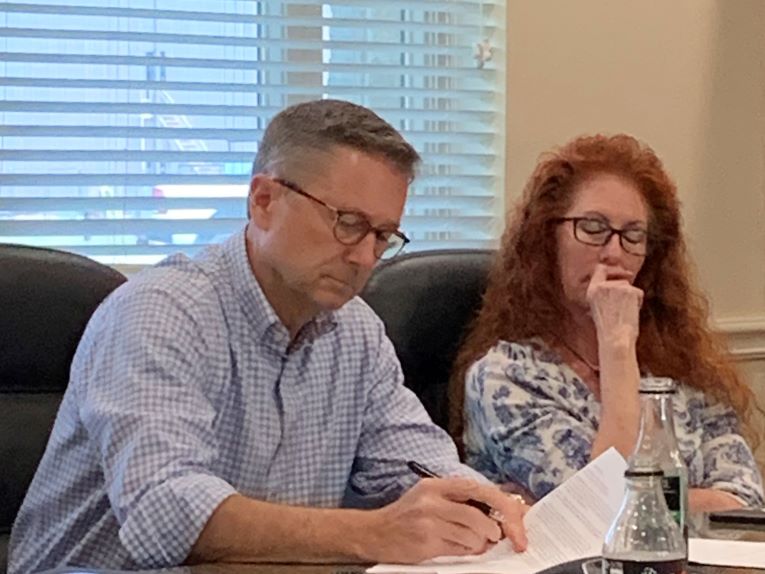
NETEX agreed to pay NETC $4,500 a month for a sum of $54,000 a year through July of 2026 to help NETC obtain a machine to clear vegetation from the right-of-ways and along the rail. NETC, agreed to eliminate the 50 percent reimbursement obligation of NETEX for track maintenance during that time. After that date, NETEX would resume returning 50 percent of what they receive in revenues from car loads back into the railroad itself for maintenance.
NETC’s track management obligation then was eliminated and the rail operator’s obligation for track Class upgrade was amended.
The original operating agreement called for NETC to get the track up to Class 1 standard within 2 years of assuming operation, then, within 5 years have the track up to Class 2 standard. NETC, after a more thorough evaluation of the track conditions, asked NETEX to amend the operating agreement, to allow the company to skip the Class 1 standard and, at a slower pace, upgrade the track to Class 2. This would in the long run save money, eliminating the need to go back on a track they’d repaired to Class 1 standard and make upgrades to Class 2 standard, which would allow for faster train speeds and additional products the cars can carry on the rail. NETEX agreed to do away with the Class 1 requirement and to extend the length of the obligation for track improvements by 2 years, pushing the term to 7 years, which Freedom Rail Group Managing Principal Mike Salek said would be more realistic to do.
NETEX, governed by a Board composed of representatives from the counties and municipalities that oversee the rail located between milepost 555.0 in Greenville and milepost 489.41 in Winfield, will need to make a double payment to NETC for the vegetation, as the terms of the agreement were finally hashed out last month, thus, the wording included the August start date for the first payment.
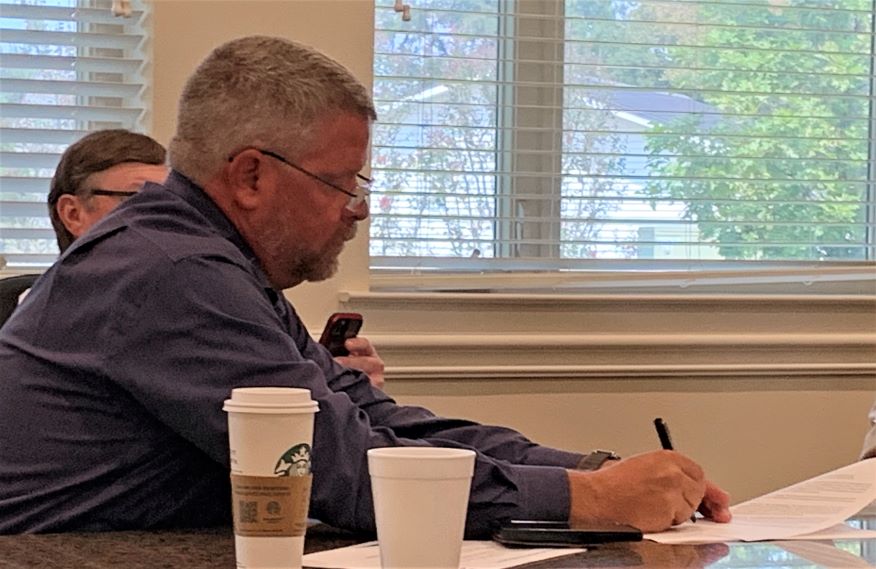
The agreement also had included July 1 as a date NETC would provide a plan for maintenance. Salek said he would compose a plan as soon as possible and should have it ready for the NETEX Board to review before the group’s next regular meeting, typically held at 1:30 p.m. the first Thursday of each month in the Sulphur Springs Economic Development Corporation offices, after the signing of a contract.
At the conclusion of the meeting, both NETEX Chair/Titus County Judge Brian Lee and Salek signed the agreement drafted to the satisfaction of both rail groups and their attorneys.
Salek said the equipment to clear the vegetation has been ordered, and is expected to arrive with all attachments and materials approximately 6 weeks for time of order, which was 2 weeks ago. He said he hopes to have the equipment in place by the end of September or first week of October. His tentative plan is to start work in the farthest point of the track in Greenville, where two railroad crossing would be cleaned up, then continue clearing crossings along the path to Mount Vernon. After that, a work crew would turn around and begin working its way back up the track cutting right-of-way, clearing it and making it safer.
Financial Matters
NETEX Treasurer Neal Barker presented his regular monthly report as well as the proposed 20221-22 budget, the latter of which will still be short of revenues needed to cover all expenses.
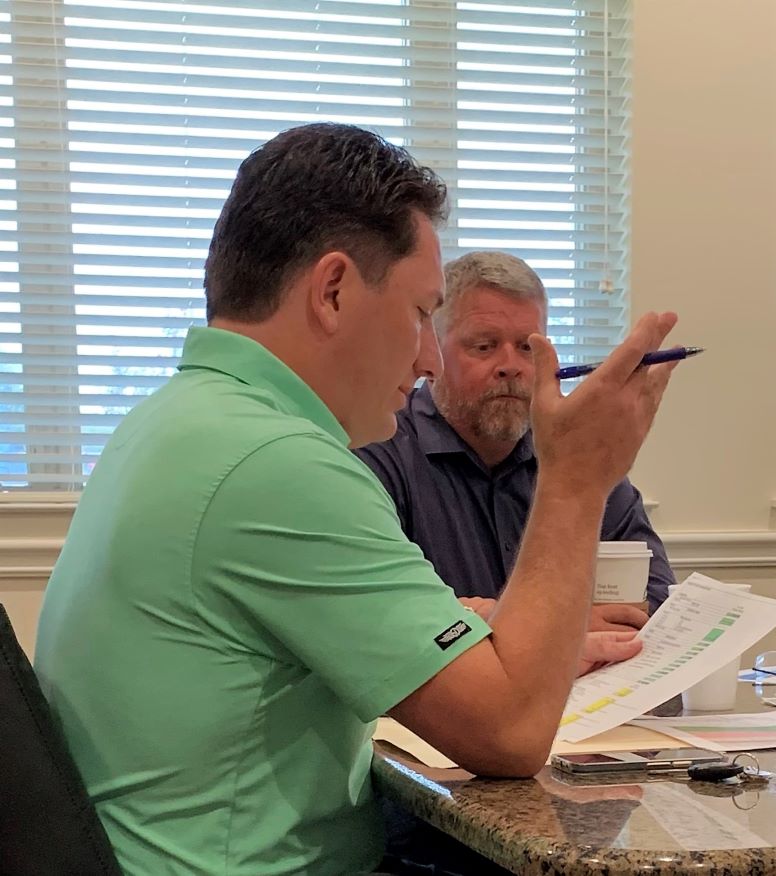
The NETEX officers said the FY 2021-22 budget as in the current budget. NETEX Board Treasurer Neal Barker noted the operation appears to be stable. He recommended focusing in the coming year on ways to increase revenue to offset the deficit.
Budgeted expenditures include $9589 for board insurance, $3495 for general liability insurance, $54,000 in right-of-way maintenance for clearing vegetation, $1,250 to the City of Lavon, about $25,000 in attorneys fees, $17,500 for the annual audit, $1,000 for administrative support, $100 general office supplies and $200 for postage. Overall, NETEX’s expenditures are expected to come in at $112,624, a shortfall of $21,349.
The NETEX Board isn’t anticipating a huge increase in revenue over the next year, but does expect some increase in carload counts after the transload facility being constructed in Sulphur Springs is completed. The new facility is expected to come online in January, so revenue from carrying a few extra cars starting in February, possibly from 2 new customers, was added to the projected budget. That is expected to bring in $71,000 next year.
The lease contracts handled by RAMS is budgeted at a potential $20,000 in revenue, interest income another $275. That’s a total of $91,275 in revenues projected for NETEX in FY 21-22.
“The spirit of what I’ve seen from this board in the last year as we’ve tightened things up is, we’ve got the expenses locked down good. Lets work on the revenues. How can we help you, as a rail bring in more cars? On the right-of-way, something?” Neal said. “I think we can erase this deficit pretty easily, actually.”
The board also discussed the need for the annual outside audit. Barker noted that a board member had contacted a firm he was told could do the audit for $6,500 for two years worth of finances. Then, COVID happened. When the auditor failed to respond to electronic and telephone requests for contact, one NETEX board member was asked to stop by the business and check on the situation. That audit has yet to be conducted, and now another year’s edit is also needed.
The NETEX board members proposed since there was no commitment either by NETEX or the auditor that the board explore other potential options for auditing services. Neal said he asked a local auditor about doing the work but was told they don’t handle that type of audit. One board member agreed to contact an auditor he has knowledge of to see if he would be interested in doing the audit for the $6,500 to quoted for 2 years worth of prior finances and the most recent year. NETEX typically only has about 50 transactions a year.
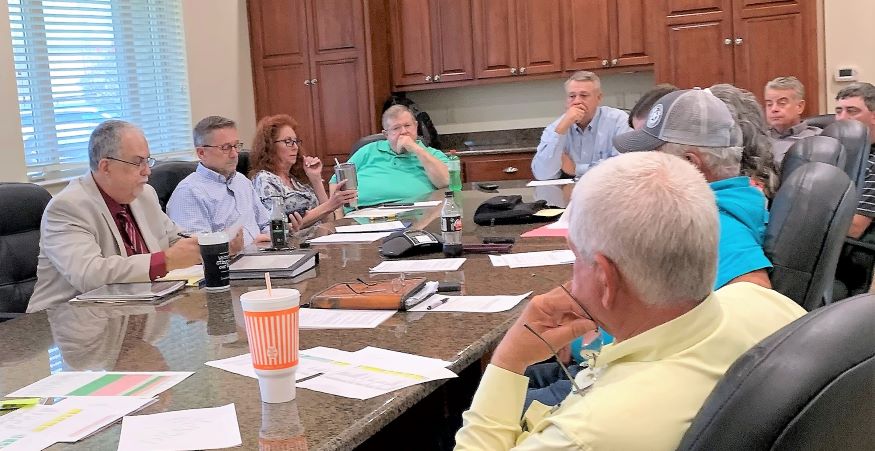
Other Business
Salek reported 88 carloads on the rail in August, down from 112 in July, which he speculated is seasonal. NETC has transported 790 carloads on the NETEX rail from January to August of this year, already ahead of the 155 carloads from July 2020, when NETC took over rail operations. The inbound cycle time average velocity is 1.1 days and the outbound cycle is 2.4 days for the month of August 2021.
NETC also installed six ties, repaired four FRA (Federal Railroad Administration) 30-day defects and 2 bridges. The rail operator also focused on cutting vegetation for safety at railroad crossings near school zones to make them safer as kids head back to class. Salek anticipated once the transload facility is operational, the line has the potential to almost double the number of cars from the current 600 to about 1,100 per year.
The NETEX Board also discussed attendance at the monthly meetings and reviewed the guidelines and bylaws, as there are 1-2 board members who’ve been consistently absent for a few months due to cited scheduling conflicts. For the last few months, since things really opened back up from COVID, the Board has barely had a quorum. County Commissioners Courts determine their representatives on the NETEX Board.
